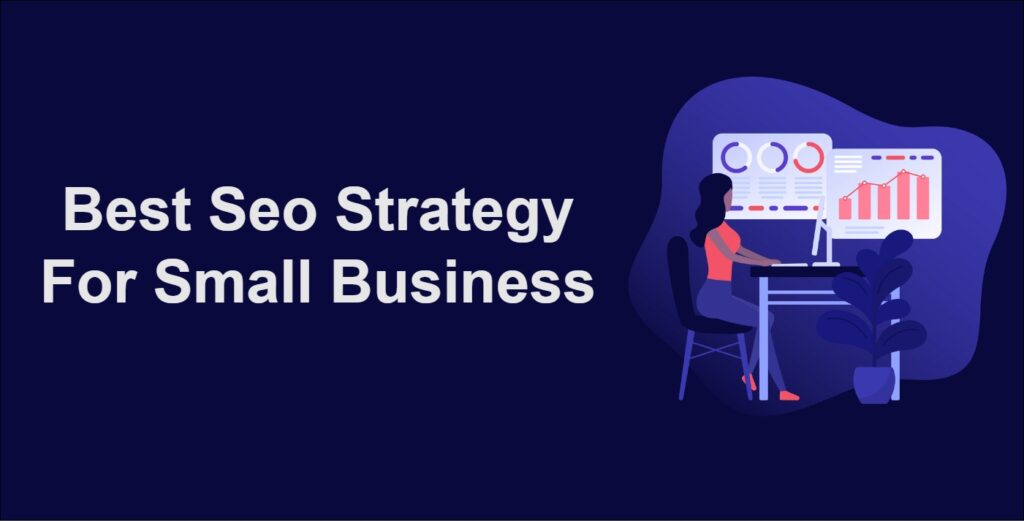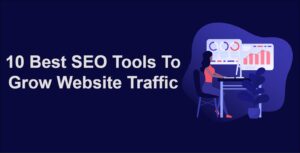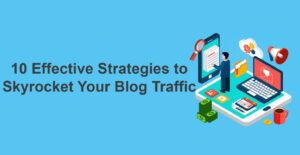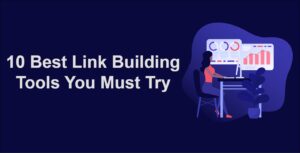The online presence of small businesses is paramount to success. Search Engine Optimization (SEO) is pivotal in enhancing visibility, driving organic traffic, and increasing brand awareness. However, for small businesses with limited resources and budgets, crafting an effective SEO strategy can seem daunting.
While it’s true that small businesses face unique challenges in the competitive online landscape, a well-crafted SEO strategy can level the playing field. By understanding the basics, optimizing your website, embracing local SEO, and strategically approaching off-page techniques, you can drive organic growth, enhance visibility, and achieve remarkable results.
SEO is a long-term investment, and consistent effort will yield sustainable success. With the right strategy and a commitment to continuous improvement, your small business can rise to the top of the digital realm.
In this comprehensive guide, we will walk you through the best SEO strategy for small businesses, enabling you to navigate the digital landscape and achieve remarkable online growth.
What Is SEO?
SEO is the practice of optimizing your website and online content to rank higher in search engine results pages (SERPs). This organic approach to driving traffic involves a combination of on-page and off-page techniques.
Why Is SEO Important for Small Businesses?
For small businesses, SEO provides a cost-effective way to compete with larger players in the market. By strategically targeting relevant keywords, you can attract potential customers who are actively searching for your products or services.
Crafting SEO Strategy for Small Business
Setting Clear Objectives
Before diving into SEO tactics, it’s crucial to define your goals. Whether you aim to increase website traffic, boost sales, or enhance brand visibility, clear objectives will guide your strategy.
Keyword Research and Analysis
Keyword research forms the foundation of your SEO strategy. Identify relevant keywords and phrases that your target audience is likely to search for. Tools like Google Keyword Planner and SEMrush can aid in this process.
On-Page Optimization
Optimize your website’s pages with relevant keywords, engaging meta descriptions, and well-structured content. Focus on user experience, ensuring fast loading times and mobile responsiveness.
Creating High-Quality Content
Content is king in the digital realm. Develop informative, valuable, and engaging content that resonates with your audience. Incorporate keywords naturally and address their pain points.
Local SEO: Conquering Your Neighborhood
The Power of Local SEO
For small businesses, local SEO is a game-changer. It involves optimizing your online presence to appear in local search results when users search for products or services near them.
Google My Business Listing
Claim and optimize your Google My Business listing. Provide accurate business information, images, and encourage customer reviews. This will enhance your chances of appearing in Google’s local pack.
Online Directories and Citations
Ensure consistent business information across online directories and citations. This includes your business name, address, phone number, and website.
Local Content Creation
Develop content tailored to your local audience. This could include blog posts about local events, customer stories, or tips relevant to your community.
Off-Page SEO: Building Authority and Trust
The Role of Off-Page SEO
Off-page SEO focuses on building your website’s authority and credibility in the eyes of search engines. This is achieved through external factors like backlinks and social signals.
Building Quality Backlinks
Backlinks from authoritative and relevant websites are a vote of confidence in your content. Engage in outreach, guest posting, and partnerships to secure valuable backlinks.
Social Media Engagement
Active social media engagement not only helps in building your brand but also generates social signals that can influence search engine rankings.
Monitoring and Analysis: The Road to Continuous Improvement
Tracking Performance
Regularly monitor your website’s performance using tools like Google Analytics and Google Search Console. Track metrics like organic traffic, bounce rates, and keyword rankings.
Analyzing User Behavior
Understand how users interact with your website. Are they finding what they’re looking for? Analyzing user behavior can provide insights into optimization opportunities.
Staying Updated
SEO is an ever-evolving field. Stay updated with algorithm changes and industry trends. Subscribe to reliable SEO blogs and attend webinars to ensure you’re always ahead of the curve.





